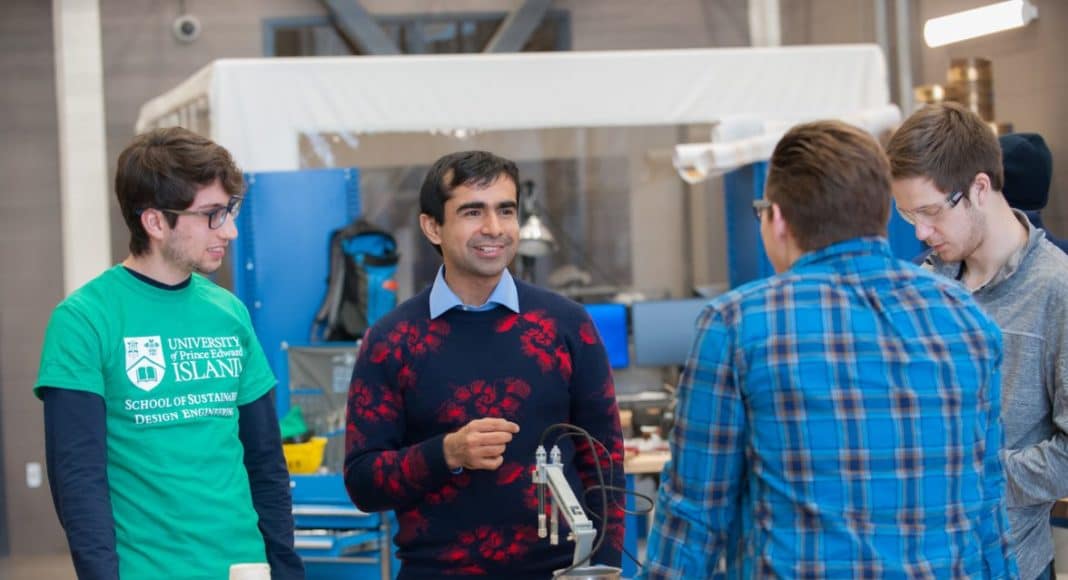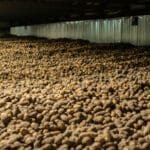The development of new technologies and systems for the application of potato production inputs has received a funding boost at the University of Prince Edward Island (UPEI).
The National Science and Engineering Research Council of Canada (NSERC) has awarded Dr. Aitazaz Farooque, an assistant professor at UPEI’s School of Sustainable Design Engineering a Discovery Grant and Discovery Accelerator Supplement.
Farooque’s research — Development of Precision Agriculture Technologies to Improve Crop Productivity and Mitigate Environmental Risks: A Pathway to Sustainable Agriculture — aims to develop technologies and systems for the application of inputs used in potato farming, including pesticide, nutrients and irrigation. Under current crop-management practices, these inputs are applied uniformly across a field, without taking into consideration variations in soil, crop, potential yield, climate, and topographical features. This not only increases the cost of production, but also poses a serious threat to the environment in the form of nutrient run-off to water bodies, sub-surface groundwater contamination, and greenhouse gas emissions.
“Development of innovative smart technologies, capable of applying agrochemicals based on soil and crop needs, is a future of modern agriculture to ensure economic and environmental sustainability,” says Farooque.
Farooque’s research program will develop and integrate technologies and systems to identify variations within a field. It will use sensing and control systems to create intelligent machines to ensure better management practices.
Over the five years of the project, Farooque’s research program will train three master’s degree students, two PhD students, five undergraduates and a research technician.
Farooque, an award-winning teacher and researcher, has been developing precision agriculture technologies for agriculture industry in Eastern Canada for several years. He has expertise and skills in engineering design, development and management, bio-systems modeling, instrumentation testing, evaluation of sensors and controllers, hardware and software for automation of machines, sensing and control systems, and mechanical modification.
He is one of only a few investigators in Canada to have received both an NSERC Discovery grant and a Discovery Accelerator Supplement.











